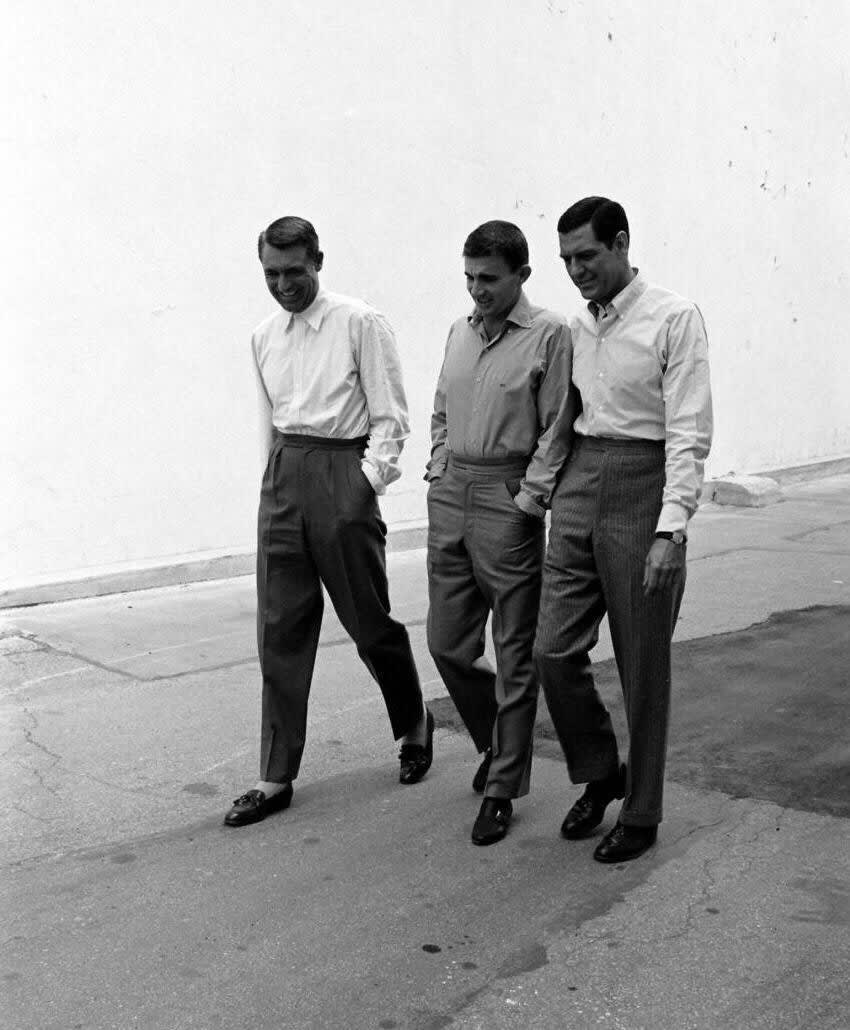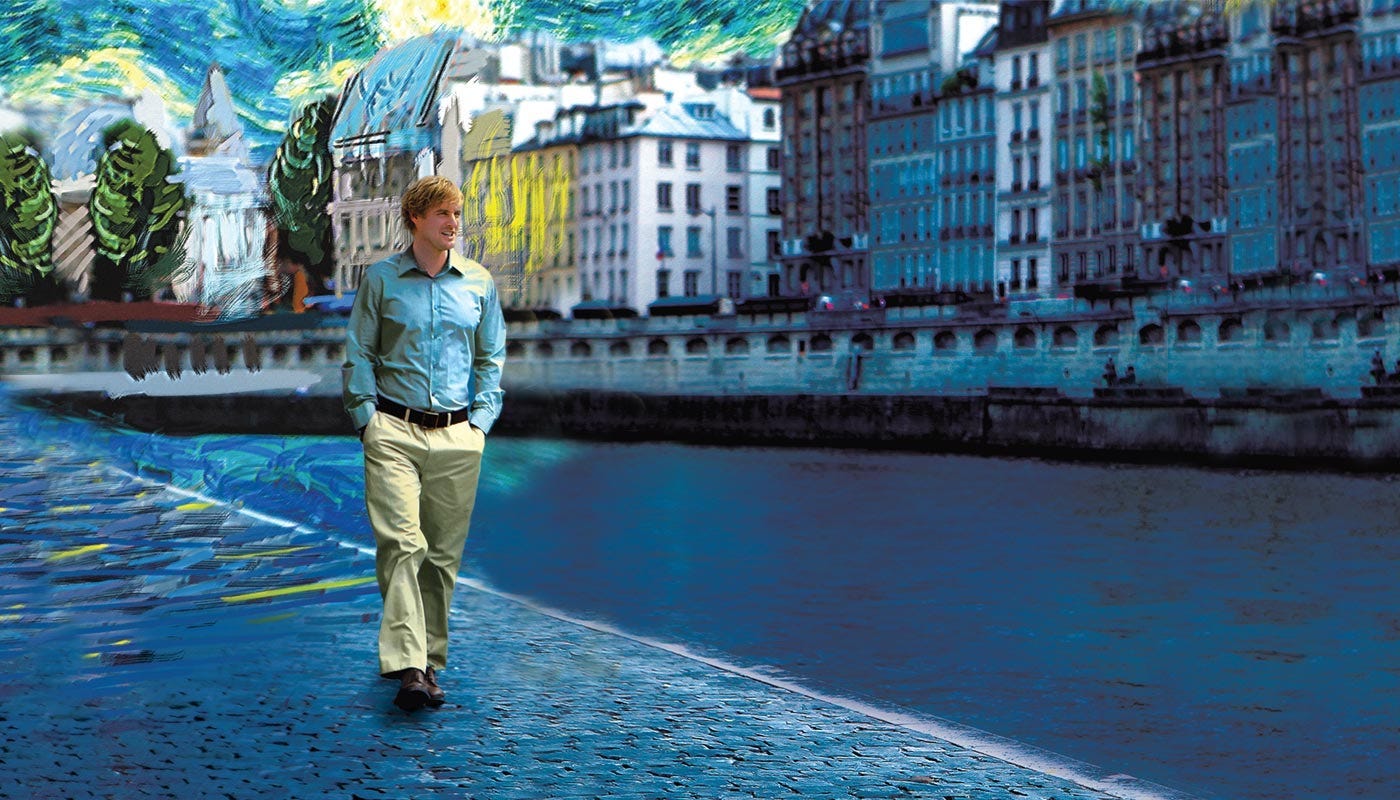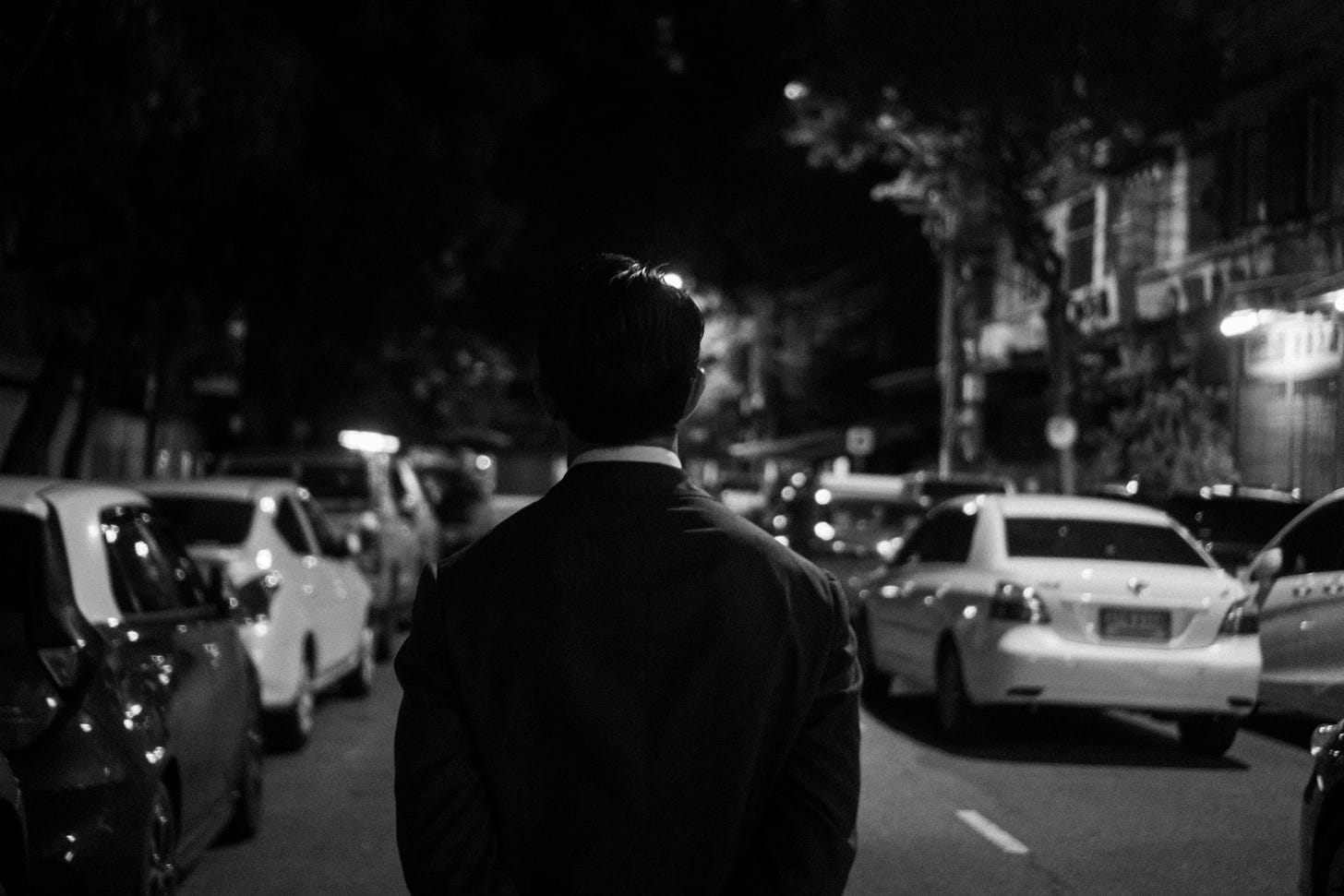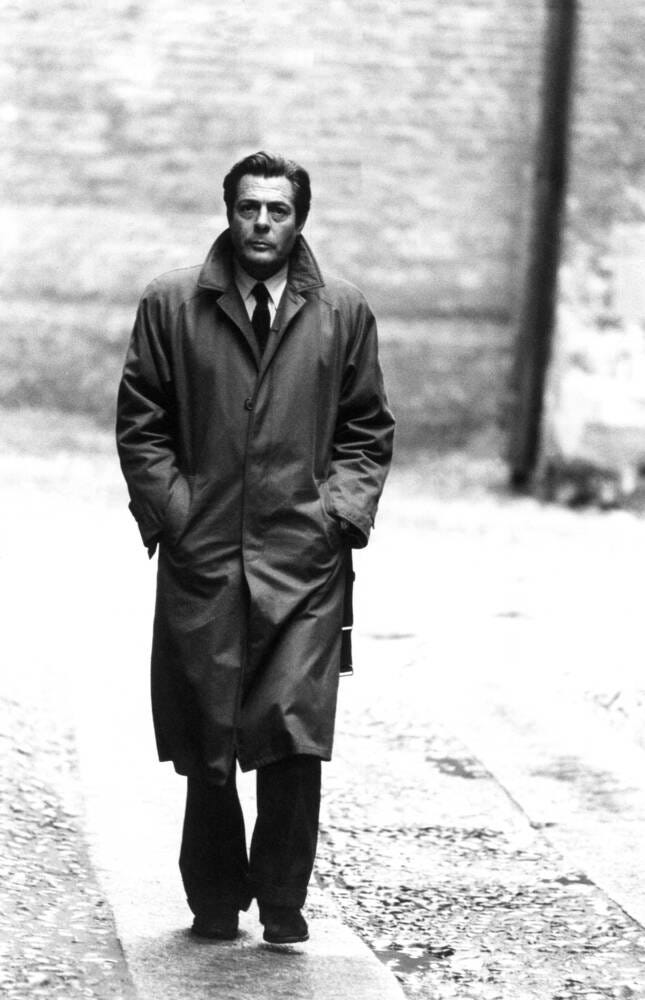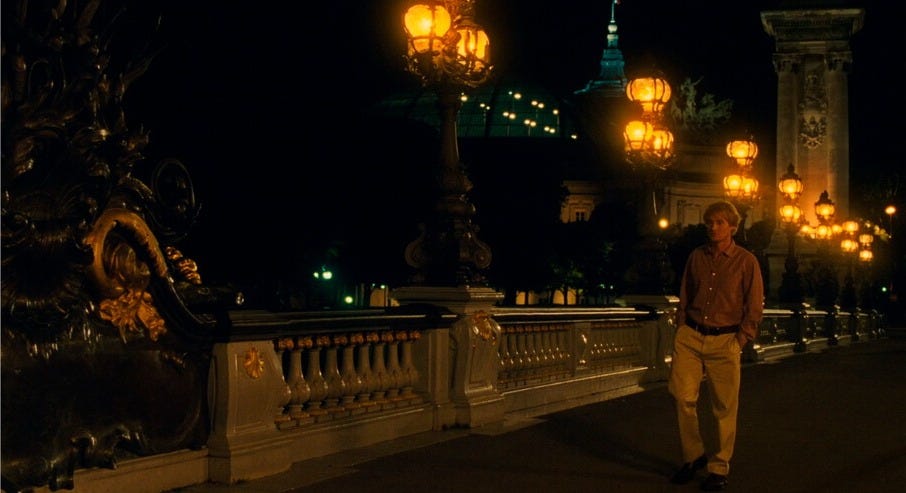Why the Modern World Feels So Empty (And What You Can Do About It)
The Alienation Crisis of an Elegant Individual Among the Casual Masses
Recently, I discovered something that has been hidden in this city and probably in the overall society we’re currently living in.
Apart from the overly casual terminology that you’ve probably heard me mention many times in the past (if you’re familiar with who I am) – it goes beyond that, into the realm of shallowness in the way of life.
Shallow is the opposite of depth – and what I mean by a ‘shallow life’ is one that merely exists on the surface level but not in the substance of it.
In fact, by the time I’m writing this, I saw a couple having a date at a café, with the man scrolling through his phone more than looking at his partner’s face, and the woman complaining to her partner for not ‘taking an aesthetically enough’ photo to post on IG.
Based on the modern paradigm, this might just be another moment in normal life – but when you dig deep into what’s happening here…
It means that their date, which is supposed to be a special moment where a man and a woman used to treat it as a sacred time for creating or maintaining a bond, building tension, spending time understanding each other, and having a great time, has turned into a ‘performance’ that exists for the sake of fabrication in life’s existence.
And gentlemen, don’t get me started on people of my generation – Gen Z…
While I think it’s normal for teenagers or young individuals to spend time exploring themselves and socializing – the image of seeing a mass of young people spending an entire evening or night engaging in hedonism, drinking excessively, and instead of even spending time socializing with their circle – again, they are locked into their phones, scrolling through IG to see how many people have watched their uploaded story.
Then there’s the way they approach their appearance.
I don’t know if this is happening in your city or not, but in Bangkok, I know it’s tropical, hot, and humid – but I still don’t see the reason why they can’t just put on proper footwear or trousers.
From my assumption – this is due to a comfort-first mindset.
Whenever they think of long-sleeve shirts, trousers, or leather footwear – all they can think of is uncomfortable garments that need to be worn but are not desirable.
Now, let’s cut to the idea of the ‘gentleman’ – an archetype representing the excellence of a man, pursued through internal character and external appearance.
This sounds like a living contradiction to modernity, doesn’t it?
While the masses cling to comfort, he stands for class.
While the masses hail casualness, he idolizes tradition.
While the masses exist for fabrication, he exists for creation.
Many people see this term as an outdated way to express oneself – but allow me to tell you a brief history of this term.
‘Gentleman’ was derived from the French term Gentilhomme and started being empirically used back in the 16th century, in the age of Shakespeare.
While the main idea was to idealize the archetype of excellence in a man, another purpose was to mark a distinction between pleasant and noble men – in other words, this term was preserved by birthright, not by freedom of choice.
Fast forward to the 20th century, this term evolved along the way and became an aspiration for all – due to the romanticization from Golden Age Hollywood.
Sadly, when the counterculture in the 1960s emerged, this term began to fade and became only a remark of a bygone era.
But here’s the twist: during the past few years, you’ve probably seen the re-emergence of the gentleman archetype among modern men – one that goes beyond just dressing in a classic style, but actually becoming one.
The attire that is worn to reflect identity and high standards in life.
The etiquette and speech that keep authenticity and assertiveness alive, yet full of calm and humility.
The substance that blends the acknowledgment of cultural, philosophical, and mastery behind daily life.
Being a gentleman has never been more needed and more rewarding than now.
But here comes the harsh truth – from the modern social landscape I’ve introduced to you… one thing that inevitably happens is the dissonance between a modern gentleman and the modern masses.
I do believe you too can resonate with this (or at least be able to imagine it).
While you dress up in elegant attire daily, others keep comfort as their first priority.
While you work and live with presence and purpose, others wander through life without full awareness.
While you advocate the beauty and cultural aspects behind the maestro or craftsman, others only see it on the surface level.
And here comes the brutal truth – you are still a human, and humans are social creatures.
You still desire and crave connection with somebody – someone who holds similar virtues to you – which, most of the time, is reflected through the act of reminiscing about the past.
Since a modern gentleman can’t find the culture he associates with nowadays – he seeks it from film, footage, a persona that resonates with him.
In my case, recently, it’s about watching and listening to the footage and songs of Françoise Hardy – a performance of Dean Martin; and thinking to myself –
“What a time to be alive”
Now, here comes the main objection to this act so-called a mere nostalgia for those who couldn’t stay in the present.
One remarkable film that greatly demonstrates this objection is Midnight in Paris – arguably the most recognizable and iconic Woody Allen piece of the 21st century.
The main idea of the film is about a nostalgic writer who is obsessed with Paris and its culture during the 1920s, where great figures like Hemingway, Fitzgerald, Picasso, and Dalí gathered – and he thinks it’s the best period to live in. And with some magic, he’s able to experience it on his own – only to find out that people in that era think that La Belle Époque during the late 19th century is the best time to live in, and people from La Belle Époque think that the Renaissance is the best.
Basically, it’s a film that both celebrates and criticizes the idea of nostalgia – of romancing the past without acknowledging the present.
This has acted as a hallmark and a supporting idea that nostalgia – like saying “what a time to be alive” to a footage of Yves Montand, Françoise Hardy, and Paris in the 1960s – is delusional and only for those who can’t adapt to modern culture and the reality of the present.
But is that really it?
Is the act of reminiscing about the past, gathering the inspiration of the virtues that have been lost and bringing them back to a world that probably needs them now more than ever – a delusional thought?
To answer that – let’s look at the true meaning of nostalgia and the differentiation between the one who keeps it as a dream for escape versus the one who uses it as inspiration for reclaiming it.
Nostalgia – Delusion or Authentic Calling?
“Teddy told me that in Greek, nostalgia literally means ‘the pain from an old wound.’ It’s a twinge in your heart far more powerful than memory alone.” – Don Draper
Well… to be more precise and less vague than what Don said – nostalgia means a feeling of pleasure and also slight sadness when you think about things that happened in the past.
The cause or trigger of nostalgic feeling can come from various sources.
Some come from the random encounter of a childhood memory that triggers feelings of the good old days that cannot be relived.
But in the case of our interest – it’s mainly from dissatisfaction.
A dissatisfaction with the culture, the way of life, the condition that one feels dissonance in – and that’s why you tend to seek a classical embodiment.
To use it as an anchor, to justify to your subconscious mind that “at least you can find those in the past” – through film, music, art, or culture as a whole.
Now, as I introduced the idea of differentiation between the dreamer and the doer…
When nostalgic feeling occurs in one’s mind – if he or she is a dreamer, then all they do is just absorb and maybe complain about why modern days can’t be like the past they admire.
But if they are a ‘doer’ – then after they absorb the essence of the past, they don’t stop with just commenting on a Reel or a YouTube video – they live and create a work that answers their calling.
Works that contain the virtue, the essence of the bygone era they admired, brought into modernity.
A life that acts as personal resistance to the norm, a manifesto proving that a life of depth and elegance can still exist.
And that, gentlemen, is what we’re going to cover in this video (well… this introduction is probably the longest one I’ve ever made – but I hope it sets the tone for the following ideas that are coming).
The Current Landscape So-Called Digital Age and Its Nature
Now, back to the modern day – the era so-called the ‘digital age’…
Before anything else, allow me to clarify the current reality we’re living in, surrounded by digitalization in every aspect of life.
With the birth of the internet and its mainstream use from the 1990s until this very moment – we can all agree it has shifted how humans live.
It allows you to connect with every individual on Earth who has the same access, in an instant click, either through text or video.
It allows you to gather information in a very individualized and real-time way, as conveniently as possible.
And as the nature of the universe lies – every coin always has two sides – so does the characteristic of the Digital Age.
What is currently happening on the mass scale – the critique that I and thousands of other figures have spoken about regarding the downside of the digital age… is not merely the fault of the internet by default.
When you look into this thing called the ‘internet’ – it’s just a tool that was built to serve humans, as we are creatures so great at inventing things to enhance our quality of life.
The fact is, when you look back at the history of mankind, no matter the period, there have always been the masses who seemed more subservient to hedonistic consumption than the small portion of individuals who aimed for creation.
You can spot this pattern whether in the late Roman Empire, where rulers provided free grain and extravagant public entertainment to keep the masses content and distracted.
While the general populace indulged in these pleasures, a much smaller class of thinkers, engineers, and leaders worked on maintaining the empire’s infrastructure, military, and culture – which in the end, this imbalance contributed to the fall of the Roman Empire.
Or during the 18th and 19th centuries – the age of industrialization that transformed societies.
While most people became consumers of mass-produced goods and lived lives structured around work and consumption, a smaller group—innovators like James Watt, Nikola Tesla, or the Wright brothers—were actively creating the technologies and systems that shaped the modern world.
Even in the Jazz Age of the 1920s, especially in the U.S. and parts of Europe, you could see a surge in consumerism, jazz, fashion, and leisure culture.
It was a time of material excess for many. Yet, amidst this hedonism, a minority of artists, writers, and intellectuals—such as F. Scott Fitzgerald or Pablo Picasso—were producing profound creative works that would influence generations.
(Though many of these artists were also partly trapped in the hedonism themselves.)
That said, the internet – this era so-called the digital age we’re living in – is a place where purposeless consumption through scrolling, shallow interaction between human beings, and comfort addiction leads to an overly casual mindset…
They are all a reflection of human nature that was conditioned to live in a society without a raised awareness.
Now, on the other side of paradise – you have a certain archetype so-called the gentleman.
A man who decides to pursue excellence in life through the way he dresses and the character he holds.
A man who does not conform to the norm and pursues his own self-directed goal just as if he’s the director of his own film, with himself being the protagonist.
A man who is not submissive to the modern paradigm of shallow and casual, instead he cultivates his mind through substantial culture.
This archetype is dangerous to the existence of conformity; it’s the direct antidote to the symptoms that the masses unconsciously suffer.
So… that’s why the dissonance and disconnection between the gentleman and the masses is inevitable.
The matter of interest for you is: how to “raise your awareness, set a certain standard, and create a way of life that contains class” – a.k.a., be a gentleman without alienating from others?
After a recent struggling experience of mine in the past weeks – I stumbled upon a concept that was invented around 150 years ago, after the age of industrialization and the birth of the metropolis that created a mass culture for the first time in history.
That concept, or philosophy so to say, was called “The Flâneur.”
Le Flâneur – The Philosophy of Detachment From the Mass
I first became aware of this concept when I was traveling in Paris last January.
It all started with the realization sparked by Woody Allen’s Midnight in Paris – and the act that the protagonist, played by Owen Wilson, is so addicted to: walking along the city from dusk till dawn.
Thanks to A.I. – after I asked it whether this specific act was an actual empirical thing or not – the term Flâneur just popped out and has stayed in my mind ever since.
As you might guess, Flâneur is a French word, and its meaning in English is “to stroll.”
It was popularized in the 19th century by a French thinker and poet named Charles Pierre Baudelaire.
Based on this passage he quoted in his famous book The Painter of Modern Life:
“The crowd is his element, as the air is that of birds and water of fishes. His passion and his profession are to become one flesh with the crowd. To be away from home and yet to feel oneself everywhere at home; to see the world, to be at the centre of the world, and yet to remain hidden from the world.” — The Painter of Modern Life, Charles Baudelaire
That’s the essence of being a Flâneur – an entity that detaches from the mass yet is able to integrate himself into them.
Now, further context on this term: as I previously mentioned, Paris (or other European capitals) during the 19th century was affected by exponential growth in terms of economy and the disruptive way of living caused by the Industrial Revolution.
This led many thinkers of that era to start questioning and seeking ways to stay sane amid the mass culture that gradually seeped into everyday life.
Apart from Baudelaire, another great figure who described the substance of the Flâneur is Walter Benjamin, a famous German philosopher during the early 20th century.
“The flâneur is the observer of the marketplace.” — The Arcades Project, Walter Benjamin
From this quote, what Benjamin really wanted to convey is the association between the Flâneur and consumerism – that the man was not only supposed to consume but to be the observer of those behaviors.
In simpler terms, apart from the idea of detaching yet staying relevant to the masses – he still observes the behavior of those masses in order to understand the reality he’s living in.
And that, gentlemen, leads us to the key philosophy of the Flâneur – and how you can use it to make your gentleman’s journey more tasteful and not alienated from others.
Key Philosophy & The Use-Case for the Modern Gentleman
First is radical observation – to walk and see, to study the world like an artist, not a consumer.
There are plenty of benefits to walking – apart from simply arriving from one place to another, it favors your health, both mental and physical.
Also, on the creativity side, it allows your mind to enter a networked mode that lets the information you’ve absorbed work on an unconscious level to come up with ideas to solve your life problems.
And in this context, the main act, the iconic visual when the term Flâneur is mentioned – is the image of a man walking without a true destination.
To walk with awareness, to observe the world around him – both its beauty and absurdity.
With this mindset applied to yours – it will allow you to be present with reality, to see the nature of human beings as it is, with less personal bias.
And in the context of being a suave, elegant individual among the overly casual masses – this couldn’t be more needed.
The practical idea is to at least take time for a walk around the town… maybe after you finish your workday, maybe in the morning – but at least have a time for radical observation to help you understand the reality of life.
The second philosophy is to be present over the obsession with productivity.
Now, I know how much this one sounds contradictory to the modern norm.
That productivity is the holy grail to a fulfilling life, to the status game of capitalism.
And… before you think that I’m the type of artist or hippie who wears a jacket and doesn’t care about earning a living or holds thoughts against capitalism…
Trust me, I’m far from being that.
In the end, productivity – the idea of a human producing value for society through work – is still important, especially for a gentleman.
But what has been happening in the modern age is that, most of the time, people see this as the main anchor of their life.
If they’re not sitting in front of a laptop, scrolling through their phone to reply to WhatsApp messages, or staying awake as long as possible to ‘do the work’ – they feel like they’ll lose their status among others.
And that causes the scenario where their minds are wandering away from the present moment and focusing on work they cannot do right now.
That’s not how a Flâneur approaches life.
It’s obvious that figures like Baudelaire or Benjamin – even fictional Flâneur archetypes like Owen Wilson’s character in Midnight in Paris or Marcello Mastroianni in La Dolce Vita – were still productive and created work that brought value to society.
But instead of obsessing over it all the time, they allowed the present to dictate their state of mind and decided to be a part of it.
I know it’s hard to do that in an age where you’re expected to be connected and responsive to everything at once – so the effective way to practice this is to return to the first philosophy of radical observation through walking.
Use that period to practice the art of stillness – instead of letting your mind wander toward external factors like the idea of being productive all the time.
(And trust me, you’ll end up producing better work that eventually becomes more productive in terms of outcome.)
The third philosophy of the Flâneur that can be extracted is to hold and treat elegance as defiance.
This one, back in the age when the term was popularized 150 years ago – especially in Paris – wouldn’t be as concrete to distill.
But based on the visual image, the appearance of the Flâneur – it’s clear that the man embodied elegance as a part of life.
Elegance means beauty, an aesthetic appeal that comes seamlessly through simplicity and doesn’t demand attention. It’s about creating ease and comfort within one’s own skin through excellent presentation.
That is the intersection between a gentleman and the Flâneur – both have a place for elegance.
The reason I describe it as defiance is because the norm of modernity has leaned toward casualness.
And a Flâneur, as we already covered, is the observer of society and uses that as a reflection of what he stands for.
When you combine this with the idea of gentlemanliness – dressing up in sartorial elegance is more than just an expression of identity, but an act of philosophical resistance to the collapse of formality that can be observed in modern life.
So… while the world around you clings to comfort, you need to stay in class.
The next one is to embrace solitude, but not isolation – which brings us to our main interest.
There will be plenty of times where you feel different from others walking around you – and that’s the beauty of solitude.
Not specifically in the physical sense, but on a mental and spiritual level.
While others are indulging in stimulation, distraction, and surface-level interests on social media agendas – you allow your mind to think freely.
To choose the culture you want to embrace and appreciate.
To pursue an interest that has no limits imposed by external forces.
To dress and act as the desirable man you want to become.
That will cause an inner solitude – but it doesn’t mean you’re isolated from others.
As Baudelaire said – a Flâneur’s passion and profession are to become one flesh with the crowd.
In the end, you still live in the present era – but what matters is how you react to it.
Are you going to be a unified mind like the mass?
Or are you going to be a man who lives freely and affects those around you with that idea?
The latter is the beauty of being a gentleman in the 2020s – that while you’re not fully like others, your presence, your effortless comfort in your own skin, and your elegant appearance will positively affect people you converse with, walk past, or connect with in one way or another.
Even though, most of the time, you will feel dissonance.
So embrace that, embrace mental solitude, and find peace within it.
This can be done through journaling in a quiet, dimly lit room, sipping a cocktail at a bar alone, or allowing yourself to go with the flow of a bygone culture that aligns with your personal values.
The fifth point of being a Flâneur is to reject conformity.
This one is obviously visible through the purpose of the archetype itself:
“To be away from home and yet to feel oneself everywhere at home; to see the world, to be at the centre of the world, and yet to remain hidden from the world.”
In a basic sense, it’s about detaching yourself from the patterns that the masses operate on.
This is not meant to mock or look down on them (though you probably have a personal opinion on the way most people live their lives these days).
But rather, to understand what’s been lost and what needs to return.
From my observation and living manifesto – it’s clear that elegance is the missing puzzle, and it’s time for humanity to integrate it back into daily life.
For you, it might be something different.
In the end, when a gentleman decides to live differently – to reject conformity – as famously quoted by Ralph Waldo Emerson: “For nonconformity, the society whips you with its displeasure.”
However, the beauty of a fulfilling life always comes through creation – to create something that exists to fix a problem and enhance the quality of life – which, most of the time, is something new that goes against entropy and prevailing trends.
So… gentlemen, whatever idea you have – even if it’s not what others around you or society expect…
If it’s your calling, please hold it tight, and do something about it.
Just like the quote from the legendary Chicago advertising man:
“When you reach for the stars, you may not quite get one, but you won’t come up with a handful of mud either.” – Leo Burnett
So… to conclude everything we’ve covered so far – it can be distilled into this statement:
“Live your life like a novel, a film, or a well-tailored metaphor.” – a.k.a., live artistically.
When you take a step back and see the big picture of a Flâneur – you will see a gentleman who treats his life like an art.
One that he decides to take control of, to adjust the pace on his own terms, to craft every aspect of it by himself.
Without permission or influence from the masses, since he detaches from them by observation – both of their beauty and absurdity.
And… whenever you feel lonely or in dissonance – treat it as mental solitude, as it should be.
Learn to embrace it, enjoy it – and remember that you don’t need to be isolated.
You can, and are, still in the present – just with a different state of mind.
So use that – for creation, for influence – to make, at least, those around you a little more elegant, a little deeper, and with a bit more class than they were.
Which can all start with you – being a gentleman who pursues excellence in life, both internally and externally, through the Flâneur philosophy that we’ve covered extensively so far.
If you want a gateway to that persona – that’s what I’ve covered and provided in The Narrative Shifter.
That’s all of this week essay – I hope you enjoyed it, and see you in the next one.



